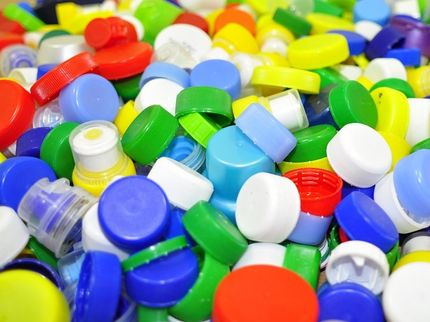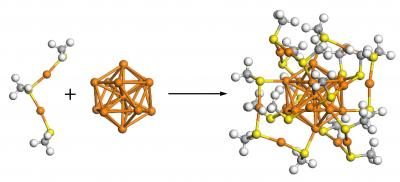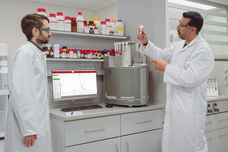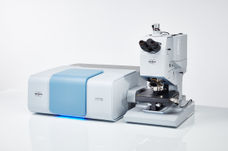Crompton Chairman V. A. Calarco honored with chemical industry's international Palladium Medal
Vincent A. Calarco, chairman, president and CEO of Crompton Corporation, will be honored today, May 14 at a dinner at New York City's Plaza Hotel as the 2003 recipient of the Societe de Chimie Industrielle - American Section's International palladium Medal.
The medal, one of the chemical industry's most prestigious awards, was established in 1958 to recognize contributions to the industry and to the enhancement of the Societe's international goals.
"I am deeply humbled by the Societe's selection of me to join the distinguished company of the 22 prior recipients of the Palladium Medal," Calarco said. "However, this honor is not mine alone. It's also a tribute to my coworkers at Crompton, whose commitment and hard work have made this possible. I'm proud to be part of Crompton and proud to be part of this industry and its talented, innovative people."
One of the topics Calarco addresses in his speech is the European Strategy for a Chemicals Policy, formerly known as the European Commission's White Paper. Calarco notes that the policy proposes that chemicals be regulated according to their intrinsic hazards, rather than according to real risks.
"It proposes an authorization system requiring chemicals to be subjected to a base set of tests. However, these tests don't consider use and exposure patterns. This is like testing medications and their effects without regard to the dosages administered," Calarco says in his speech, adding that the American Chemistry Council's Board International Committee, which he chairs, also issued a global chemicals management policy. "This policy was designed to standardize and unify the worldwide regulation of chemicals. It is based on initiatives and successful programs such as Responsible Care(R).
"Between the methods, there is a very basic difference," Calarco says. "A risk-based approach to authorization takes into account the degree of risk associated with a chemical in use, that is, use at a particular dosage or exposure level.
"Besides the fundamental philosophical differences in the two approaches, there is the unavoidable cost issue. According to an analysis done by the United Kingdom's Institute for Environment and Health, based on more than 30,000 chemical products sold in the EU and an average testing cost of some $250,000 per chemical, the total cost would be nine billion euros. This same study estimates that testing could take some 44 years," Calarco says. "If these proposed regulations were to be implemented, it would have a significant adverse impact on innovation and competitiveness. It would make Europe the most expensive place in the world to bring a chemical to market. Even today, four times as many new and safe chemicals -- used to improve our lives -- are brought to market in the United States as in the EU each year."
Calarco has more than 30 years experience in the specialty chemicals industry. He started his career in the industry in 1970 at NL Industries Inc., where he held a series of management positions in Plastics and Specialty Chemicals. He joined Uniroyal Chemical Company in May 1978 as general manager, Chemicals and Polymers, and in 1979 was appointed president of Uniroyal Chemical and elected vice president of Uniroyal Inc., the parent company.
In 1985, he became president and chief executive officer of Crompton & Knowles Corporation and a year later was elected to the additional post of chairman. Crompton Corporation was formed in 1999 through the merger of Crompton & Knowles and Witco Corporation, making it one of the world's largest specialty chemical companies.
Calarco has been a member of the board of directors of Crompton & Knowles since 1985 and of its successor, Crompton Corporation, since its inception in 1999. He also is a director of Newmont Mining Corporation and Consolidated Edison Inc. In addition, he serves on the board of the Hospital of St. Raphael in New Haven, Connecticut and as the co-chair at the Harvard Center for Risk Analysis.
Calarco is the past chairman of the American Chemistry Council and the Society of Chemical Industry-American Section and past president of the Society of Chemical Industry (London) and currently serves as vice chairman and trustee of the Chemical Heritage Foundation.
Calarco received a B.S. in chemical engineering at Polytechnic University of New York (1963) and an MBA with distinction from the Harvard Graduate School of Business Administration (1970).
The American Section of the Societe's de Chimie Industrielle was founded in 1918 in New York. Its mission is to aid and encourage the utilization of scientific and engineering developments by the industry and the promotion of chemistry in public opinion. A non-profit organization, it holds monthly meetings featuring prominent CEOs, awards scholarships allowing minority students to advance their study of chemistry and honors individuals who have made significant contributions to the industry.


































































